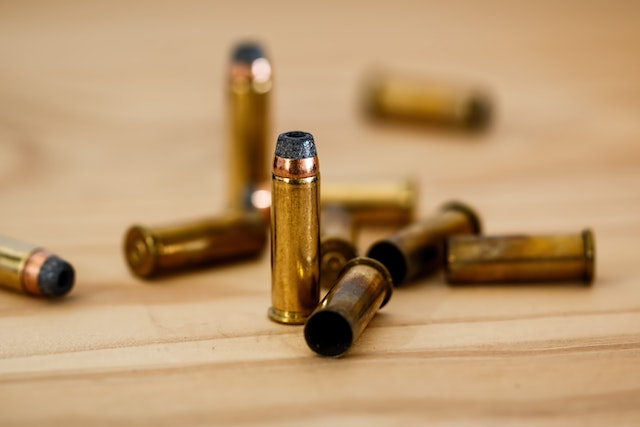Choosing appropriate ammunition becomes a critical decision when discussing firearms, where precision and reliability are paramount. For personal defense, law enforcement, or competitive shooting, selecting the correct ammunition is critical. Among the various calibers available, 9mm ammunition has earned a place of prominence for its versatility and effectiveness. In this article, delve into the depths of supply of 9mm ammo, exploring its history, applications, and critical factors when choosing the perfect rounds for your needs.
A Historical Perspective
The journey of the 9mm cartridge dates back to the early 20th century. Developed in Germany in 1902, it was initially introduced as the “9x19mm Parabellum.” The name, derived from the Latin phrase “Si vis pacem, para bellum” (If you want peace, prepare for war), reflects its military origins. This compact, semi-automatic pistol round quickly gained popularity due to its manageable recoil and capacity for higher magazine loads compared to larger calibers.
Versatile Applications
9mm ammunition has found its place in a wide array of applications. Let’s explore some of the critical areas where it shines:
Personal Defense: Many concealed carry enthusiasts and self-defense advocates favor 9mm handguns for their ease of use and effectiveness in close-quarters combat situations. The manageable recoil allows quicker follow-up shots, while the cartridge’s energy transfer helps stop threats effectively.
Law Enforcement: Numerous police forces worldwide have adopted 9mm pistols as their standard sidearms. Law enforcement officers appreciate the balance of stopping power and control that 9mm ammunition provides. It strikes the delicate equilibrium between incapacitating assailants and minimizing collateral damage.
Competition Shooting: In competitive shooting, where precision and speed are paramount, the 9mm ammunition stands as a favored choice. Its relatively mild recoil provides shooters with superior control, resulting in tighter shot groupings and faster target acquisitions, both crucial elements for success in timed competitions. Furthermore, the 9mm’s popularity has led to a wide range of specialized ammunition options, allowing competitors to fine-tune their selections to match their unique shooting styles and preferences, further solidifying its position as the preferred caliber for those striving to excel in the competitive shooting arena.
Factors in Ammunition Selection
Selecting the ideal 9mm ammunition involves considering several factors to ensure optimal performance and safety:
Bullet Type: The 9mm cartridge offers a diverse array of bullet types, catering to a wide range of shooting needs. Beyond Full Metal Jacket (FMJ) for target practice and Hollow Point (HP) for self-defense, there are specialized rounds tailored for specific applications. These include frangible bullets, designed to break apart upon impact and minimize the risk of over-penetration, and +P (Overpressure) rounds, offering increased velocity and energy for enhanced stopping power. Each bullet type serves a distinct purpose, ensuring that you can precisely match your ammunition to your intended use and optimize performance.
Grain Weight: Ammunition grain weight is a crucial consideration when selecting 9mm rounds, with options typically ranging from 115 to 147 grains. Lighter bullets, around 115 grains, are prized for their higher velocities and reduced recoil, making them ideal for precision target shooting and quick follow-up shots. In contrast, heavier 147-grain bullets deliver increased energy and penetration, rendering them a top choice for self-defense scenarios where stopping power is paramount. Between these extremes, the 124 to 135-grain range provides a balanced compromise between velocity and stopping power, catering to a wide spectrum of shooting applications. Your choice of grain weight should align with your specific ammunition needs, whether it’s accuracy-focused target shooting or ensuring maximum stopping power for self-defense.
Muzzle Velocity: Muzzle Velocity: The velocity at which a bullet leaves the barrel, measured in feet consistent with 2nd (FPS), affects accuracy and terminal ballistics. Understanding the supposed use of your ammunition will assist you in determining the finest muzzle pace to your wishes.
Recoil Management: Recoil can significantly affect your shooting experience and accuracy. Ammunition with moderate recoil is often preferred for extended shooting sessions and precision work, while lighter loads may be more comfortable for those new to shooting.
The Ammunition Arsenal
When procuring a supply of 9mm ammo, sourcing from reputable manufacturers and suppliers is essential. Quality control, consistency, and adherence to safety standards are crucial when it comes to ensuring that your supply of 9mm ammo meets the required specifications. Additionally, staying informed about local and national firearms laws is imperative to ensure legal compliance in acquiring and possessing ammunition.
Conclusion
In conclusion, the world of 9mm ammunition is diverse and dynamic, catering to a broad spectrum of shooting enthusiasts and professionals. Whether you’re a seasoned marksman or a newcomer to firearms, understanding the nuances of 9mm ammunition empowers you to make informed decisions and unlock the full potential of your firearms. Remember, knowledge and diligence are your most potent allies in the world of firearms.







